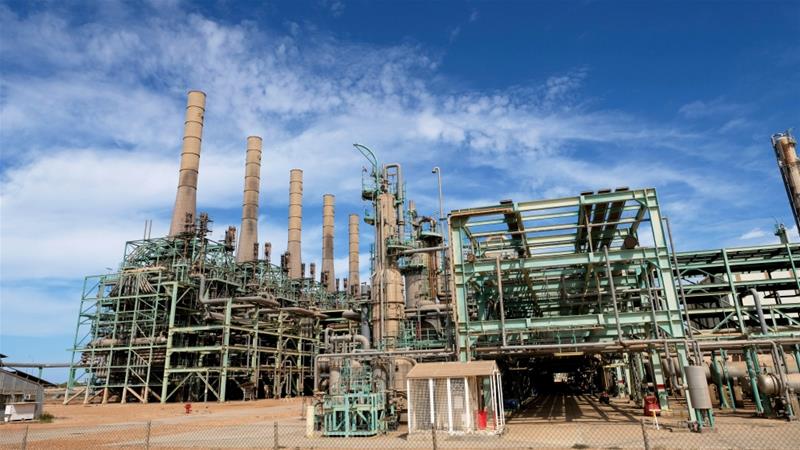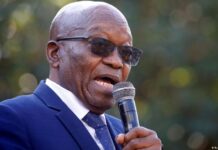Forces loyal to Khalifa Haftar have closed major oil ports since January 18, causing a sharp fall in Libya‘s output.
Fayez al-Sarraj, the head of Libya’s internationally recognised government, has warned the North African country will face a financial crisis and a budget deficit in 2020 because of a blockade of oil terminals and oil fields by groups loyal to his rival, Khalifa Haftar.
The North African country’s oil output has fallen sharply since January 18 when the blockade started.
“The continuation of the shutdowns will result in a catastrophic financial crisis,” al-Sarraj told reporters in the capital, Tripoli. “Losses from the oil shutdowns have exceeded $1.4bn. The figure is increasing everyday.”
The state-run National Oil Corporation (NOC) said on Thursday crude output had dropped to 163,684 barrels per day.
Oil is the main source of national income for the country and before the blockade, Libya was producing 1.2 million bpd.
“Certainly, in light of the continued closure of oil facilities, the 2020 budget will face a deficit and [it] will drop to its lowest levels,” al-Sarraj said.
Haftar’s Libyan National Army and forces aligned al-Sarraj’s Government of National Accord (GNA) have been fighting since April last year for control of the capital.
Fighting has continued despite a call for a truce by Russia and Turkey starting on January 12 and an international summit on Libya in Berlin on January 19 aimed at reducing international interference.
Libya has been mired in chaos since 2011 when a NATO-backed uprising toppled longtime leader Muammar Gaddafi. The country is now split into rival administrations in Tripoli and the east.
Most of Libya’s oil facilities are in areas controlled by forces loyal to Haftar, who has gradually expanded his power over the past six years with the help of foreign allies, including the United Arab Emirates, Egypt and Russia.
The GNA is backed by Turkey and to a lesser degree, Qatar and Italy.
Al-Sarraj on Saturday warned that foreign backing for his rival would only “prolong the war and create deeply rooted hatred that will be difficult to overcome”.
His comments came as Turkey’s President Recep Tayyip Erdogan accused Russia of managing the Libyan conflict “at the highest level” and pledged to continue to support al-Sarraj’s GNA.
The Turkish leader repeated the accusation that Russia has sent mercenaries to support Haftar despite Moscow denying the claims.













![Hotstar Premium Cookies 2019 [*100% Working & Daily Updated*] Hotstar Premium Cookies 2019 [*100% Working & Daily Updated*]](https://tahav.com/wp-content/uploads/2019/11/Hotstar-Premium-Cookies-Free-100x70.jpg)



